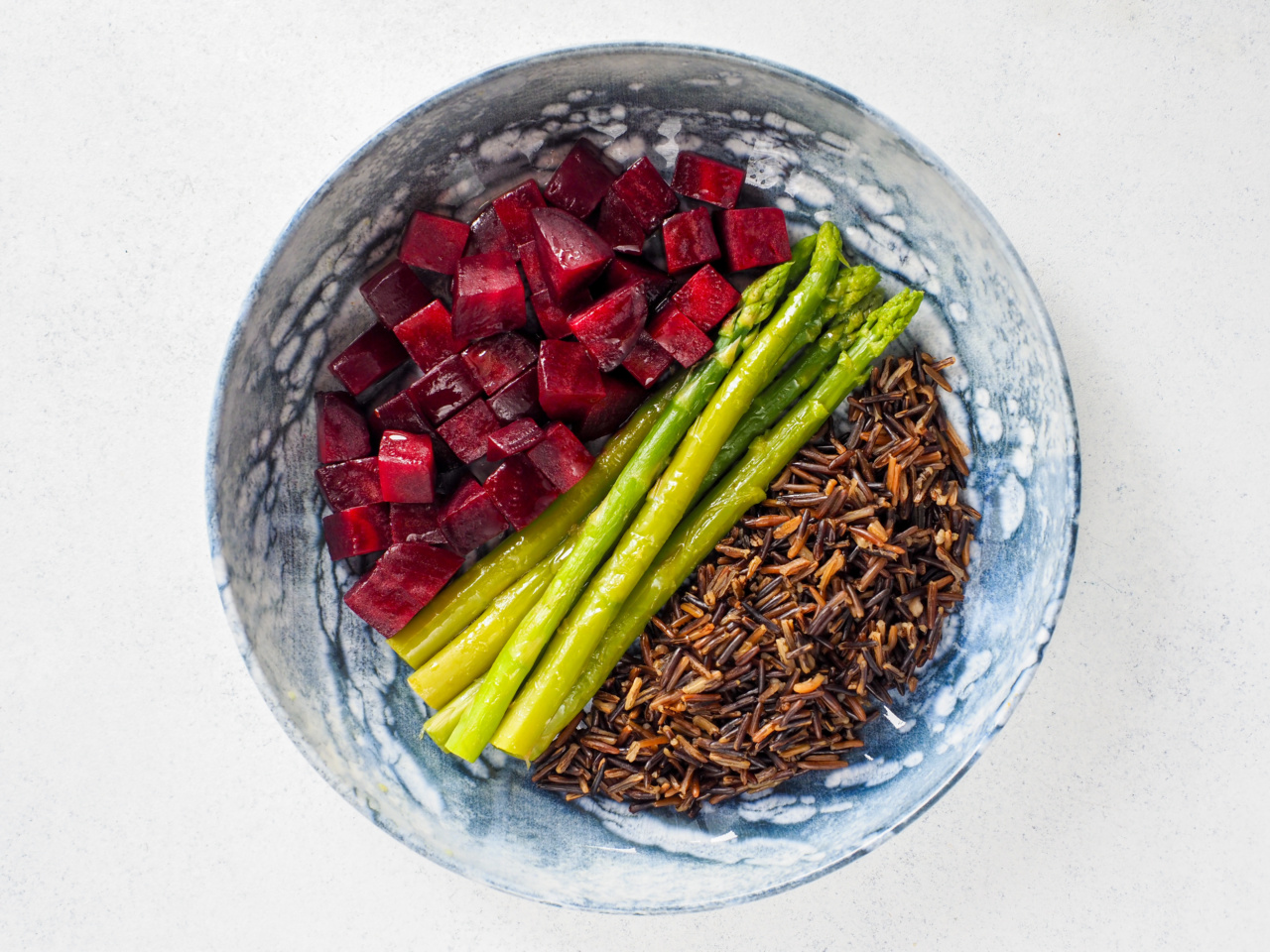As the temperatures drop and we enter the winter season, it’s time to embrace the goodness of root vegetables.
These nutrient-dense veggies not only add flavor and variety to our meals but also provide exceptional immune health and digestion support. Packed with essential vitamins, minerals, and dietary fibers, winter root vegetables are a must for boosting our well-being during this time of the year.
1. What are Winter Root Vegetables?
Winter root vegetables refer to the edible plant roots that mature during the colder months. They are typically harvested in late fall and can be stored throughout winter, making them readily available during the season.
These vegetables often have a hearty and robust flavor, making them perfect for comforting winter dishes.
2. Types of Winter Root Vegetables
There is a wide variety of winter root vegetables to choose from, each offering its unique nutritional profile. Some of the most common types include:.
a) Carrots
Carrots are famous for their high beta-carotene content, which is converted into vitamin A in our bodies. They also provide an excellent source of antioxidants and dietary fiber.
b) Beets
Beetroots are rich in nitrates, antioxidants, and dietary fibers. They have been linked to improved cardiovascular health and reduced inflammation.
c) Turnips
Turnips offer a good source of vitamin C, vitamin K, and folate. They also contain glucosinolates, compounds known for their potential cancer-fighting properties.
d) Rutabagas
Rutabagas are a cross between turnips and cabbage, delivering a unique flavor. They are packed with essential nutrients, including vitamin C, potassium, and manganese.
e) Parsnips
Parsnips have a slightly sweet and earthy taste. They are high in fiber, folate, and vitamin C, which supports our immune system and helps in collagen production.
f) Sweet Potatoes
Sweet potatoes are one of the healthiest root vegetables available. They are a fantastic source of vitamin A, vitamin C, manganese, and dietary fiber.
3. Immune Health Benefits
Winter root vegetables play a crucial role in supporting our immune system, which is often challenged during the winter months. They contain an array of immune-boosting nutrients, including vitamins A, C, and E, as well as zinc and selenium.
These nutrients help strengthen our natural defenses and protect against common illnesses such as colds and flu. Additionally, the antioxidants found in root vegetables combat inflammation and oxidative stress, further supporting a robust immune system.
4. Digestion Support
Root vegetables are also packed with dietary fibers that promote healthy digestion. The fiber content aids in regulating bowel movements, preventing constipation, and maintaining a healthy gut microbiome.
A well-functioning digestive system is essential for nutrient absorption, waste elimination, and overall gut health. Including root vegetables in your winter diet can help keep your digestive system running smoothly.
5. Cooking with Winter Root Vegetables
Winter root vegetables are incredibly versatile and can be prepared in various ways to suit different tastes. Here are a few popular cooking methods:.
a) Roasting
Roasting root vegetables brings out their natural sweetness and enhances their flavors.
Cutting them into bite-sized pieces, tossing them in olive oil, and seasoning with herbs and spices before roasting at a high temperature can result in delicious and crispy veggies.
b) Soups and Stews
Root vegetables also make excellent additions to soups and stews. Their heartiness adds substance and depth to the dish, making it comforting and satisfying.
c) Mashed or Pureed
Boiling and mashing root vegetables like potatoes, carrots, and parsnips can create a smooth and creamy texture. It can be served as a side dish or as a base for various recipes.
6. Nutritional Comparison
While each root vegetable offers unique nutritional benefits, here is a general nutritional comparison per 100 grams:.
Carrots:.
- Calories: 41
- Protein: 0.93 grams
- Fat: 0.24 grams
- Carbohydrates: 9.58 grams
- Fiber: 2.8 grams
- Vitamin A: 835 micrograms
- Vitamin C: 5.9 milligrams
Beets:.
- Calories: 43
- Protein: 1.61 grams
- Fat: 0.17 grams
- Carbohydrates: 9.56 grams
- Fiber: 2.8 grams
- Vitamin C: 4.9 milligrams
- Folate: 109 micrograms
Turnips:.
- Calories: 28
- Protein: 0.9 grams
- Fat: 0.1 grams
- Carbohydrates: 6.43 grams
- Fiber: 1.8 grams
- Vitamin C: 21 milligrams
- Vitamin K: 0.2 micrograms
Rutabagas:.
- Calories: 39
- Protein: 1 gram
- Fat: 0.2 grams
- Carbohydrates: 8.62 grams
- Fiber: 2.3 grams
- Vitamin C: 25 milligrams
- Potassium: 305 milligrams
Parsnips:.
- Calories: 75
- Protein: 1.2 grams
- Fat: 0.4 grams
- Carbohydrates: 18 grams
- Fiber: 4.9 grams
- Vitamin C: 17 milligrams
- Folate: 39 micrograms
Sweet Potatoes:.
- Calories: 86
- Protein: 1.6 grams
- Fat: 0.1 grams
- Carbohydrates: 20.1 grams
- Fiber: 3 grams
- Vitamin A: 709 micrograms
- Vitamin C: 2.4 milligrams
7. Incorporating Winter Root Vegetables into Your Diet
To enjoy the benefits of winter root vegetables, consider incorporating them into your daily meals. Here are some ideas:.
a) Start your day with a nutritious breakfast:
Grate carrots or beets and add them to your morning smoothie or juice. Their natural sweetness pairs well with fruits like apples and oranges, providing a refreshing and energy-boosting start to your day.
b) Create warming soups:
Prepare a hearty vegetable soup using a mix of root vegetables like turnips, parsnips, carrots, and rutabagas. Add some spices and herbs for a comforting winter meal.
c) Roast and season:
Roast a combination of root vegetables in the oven with olive oil, garlic, and your choice of seasonings. Serve them as a side dish or toss them into a salad for added texture and flavor.
d) Experiment with purees:
Steam or boil root vegetables until they are soft, then puree them to create a creamy side dish. Adding some herbs or spices can elevate the taste and make it a versatile accompaniment to various meals.
8. Conclusion
Winter root vegetables are nutritional powerhouses that offer a range of health benefits, particularly in supporting immune health and promoting healthy digestion.
Including these versatile veggies in your winter meals can provide essential vitamins, minerals, and dietary fibers, ensuring your well-being throughout the colder months. So, embrace the goodness of root vegetables and reap the rewards they have to offer for your overall health.































